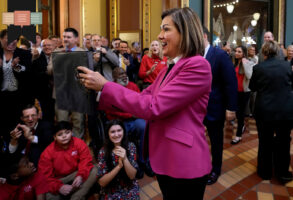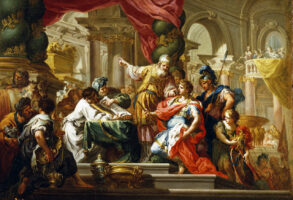
Published May 13, 2015
America received its history and civics report card recently, but there won’t be any bumper stickers boasting of making the honor roll. The release of the U.S. Department of Education’s latest National Assessment of Educational Progress (NAEP) for history, civics and geography shows that we are raising another generation of historical and civic amnesiacs.
Overall scores for the “Nation’s Report Card” were stagnant, maintaining a long-term trend of dismal performance. Of the nearly 29,000 eighth grade students tested last year, only 18 percent were deemed “proficient” or better in history, and only 23 percent in civics. Only a third of students could identify one reason for and against ratification of the Constitution or identify how the role of government changed because of the New Deal.
The problem is not just the valleys in the test scores but also the lack of peaks. Only 1 percent of students performed at the “advanced” level on the history exam and 2 percent on the civics exam.
These latest test results tell us where we are, but the tests themselves point to where we are going. In math and reading, the NAEP tests fourth, eighth and 12th graders every two years. By contrast, the NAEP tests history and civics only once every four years — half as frequently as math and reading — and now, beginning with the 2015 results, at only a single level: eighth grade. The testing regime treats math and reading as six times more important than history and civics.
In the world of high-stakes standardized testing, where national exam scores count, many teachers understandably “teach to the test.” Now that we have stopped national testing for history and civics on the fourth and 12th grade levels, there will be less of a reason for states and schools to teach those subjects on those levels. The latest test results show us the problems in history and civics education, but the elimination of the fourth and 12th grade tests suggests that the situation is only going to get worse.
Such mediocre standards wouldn’t be accepted in the fields of literacy, science and math. But we have come to accept them for history and civics. Once considered vital to the American experiment in constitutional self-government, these subjects are continuing their slide toward becoming an afterthought in American education.
This neglect comes at a price. Students who are strangers to the basic facts about their government lack the tools they need to become fully functioning citizens of our republic. When citizens don’t understand their rights, or the powers and limits of their government, they’re at a long-term disadvantage in asserting and defending those rights and in holding their leaders accountable. Consequently, balancing majority rule with minority rights, resolving political problems at the most appropriate governmental level, and forging compromises and consensus all become more difficult. And, not surprisingly, civility on political questions becomes increasingly scarce.
It doesn’t have to be that way. History and civics education only recently became the schoolhouse stepchild. From 2002 to 2012, the federal government spent more than $1.3 billion on efforts that directly supported history and civics education. Yet the Presidential and Congressional Academies for American History and Civics are gone. Gone, too, are the Teaching American History grants and the National Endowment for the Humanities’ “We the People” initiative that connected American history instruction for students and teachers to the iconic landmarks of that history.
Washington’s neglect of history doesn’t have to become America’s loss. Private philanthropy stepped in to tackle our problems with STEM (science, technology, engineering and mathematics) education, and it can do the same to fill the massive void in history and civics education. Dedicated and focused nonprofit organizations across the country can, in fact, help parents and teachers educate the next generation about what it means to be an American.
Unless we as a society make rediscovering America a priority, we risk more than a few lousy test scores. We risk losing our understanding of who we are and why America is uniquely important in the long history of the world.
Bruce Cole, chairman of the National Endowment for the Humanities from 2001 to 2009, is a senior fellow at the Ethics and Public Policy Center. Roger L. Beckett is executive director of the Ashbrook Center at Ashland University.






